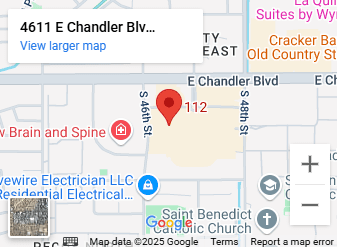Comparing Local and National Business Brokers in Phoenix
Choosing between a local Phoenix business broker and a national brokerage firm shapes sale outcomes, timeline, and cost efficiency. This article reveals how local brokers deliver personalized market-driven valuation, targeted buyer outreach, and in-depth regional expertise, while national firms leverage expansive networks, standardized M&A processes, and sector-specific teams to maximize deal scope. You will learn:
- The suite of services local Phoenix brokers provide, from valuation to closing support
- How national firms structure their advisory, confidentiality, and fee models
- Direct comparisons on market knowledge, networks, personalization, and cost implications
- Best practices for valuation, due diligence, and broker selection
- Real-world success stories illustrating each approach
Delving into service scope, fee structures, valuation methodologies, and confidentiality protocols builds a clear picture of which brokerage model aligns with your business goals.
What Services Do Local Phoenix Business Brokers Offer?
Local Phoenix business brokers facilitate business sales by combining municipal market insight with hands-on transaction support, resulting in accurate pricing and swift closings. They assess local demand, craft tailored marketing, and shepherd deals from listing through negotiation to handover, helping owners capitalize on Phoenix’s growth dynamics.
Rise48 Equity, MMI Industrial & Steel, (2025)
[Phoenix Market Trends and Growth]
Phoenix is experiencing significant industrial growth, with an increase in manufacturing activities and major construction projects fueling the demand for steel. The city is also emerging as a tech hub.
How Do Local Brokers Provide Business Valuation in Phoenix?

Local brokers determine fair market value by analyzing recent Phoenix transaction comparables, adjusting EBITDA multiples for regional economic factors, and leveraging proprietary databases to refine pricing.
- Collect three to five local sale comparables within similar industries.
- Apply adjusted earnings multiples based on Phoenix growth rates.
- Factor in location-specific risks—tourism, labor market, regulations.
- Validate results with confidential owner interviews and financial audits.
Through these steps, sellers gain a valuation grounded in Phoenix-metro realities that supports competitive listing and buyer confidence, feeding directly into tailored sales strategies.
Pro Business Valuations, Adams Brown, (2024)
[Business Valuation Methods in Phoenix]
Business valuation in Phoenix, Arizona, involves determining a business’s economic value for various reasons, including buying or selling a business. Several methods are used, including asset-based, income-based, and market-based approaches.
What Is the Local Process for Selling a Business in Phoenix?
Local brokers orchestrate sales by sequencing targeted valuation, strategic marketing, buyer screening, negotiation, and close coordination.
- Initial Consultation – Explore financials, objectives, and timeline.
- Customized Valuation – Set price reflecting Phoenix metrics.
- Discrete Marketing – Engage local investor groups and community networks.
- Buyer Vetting – Qualify purchasers on financing and industry fit.
- Negotiation & Due Diligence – Facilitate documents and site visits.
- Closing Coordination – Align attorneys, accountants, and lenders.
By controlling each step within Phoenix’s unique ecosystem, brokers accelerate decision-making and minimize transaction friction, paving the way to final signatures and fund transfers.
How Do Local Brokers Assist Buyers in Phoenix?
Local buyer representation connects entrepreneurs with off-market and listed businesses by scouring Phoenix neighborhoods, leveraging community referrals, and aligning acquisitions with capital sources. Brokers translate municipal licensing rules, permit requirements, and industry regulations into actionable guidance, ensuring buyers navigate local due diligence and secure financing from nearby banks familiar with regional ventures. This structured support grounds buyer decisions in Phoenix’s regulatory context and economic outlook, positioning acquisitions for rapid integration and growth.
What Are Typical Fees and Commissions Charged by Phoenix Brokers?
Local Phoenix brokers charge commissions ranging from 8 percent to 12 percent of sale price, often with a minimum fee to cover upfront marketing and valuation costs.
| Service Stage | Typical Fee Range | Purpose |
|---|---|---|
| Engagement Retainer | $2,000–$10,000 | Covers initial valuation and setup |
| Success Commission | 10%–15% | Incentivizes closing at peak value |
| Minimum Commission | $15,000–$25,000 | Ensures coverage of small deals |
Business Broker Phoenixaz, (2025)
[Commission Rates for Business Brokers in Arizona]
Business brokers in Arizona typically charge commissions ranging from 8% to 12% of the final sale price for small to mid-sized businesses, with the percentage potentially varying based on the broker’s experience and the complexity of the transaction.
These transparent fees align broker incentives with seller outcomes, encouraging active promotion and personalized negotiation—an approach that often yields higher net proceeds in Phoenix’s competitive market.
How Do Local Brokers Leverage Phoenix Market Knowledge and Networks?
Local Phoenix brokers harness relationships with community lenders, franchise operators, and county economic development offices to spotlight listings and fast-track approvals. By tapping networks of seasoned buyers in healthcare, construction, and hospitality, brokers deliver targeted outreach campaigns that match industry insiders to opportunities. This creates a dense web of referrals and financing channels that local owners and acquirers depend on to navigate Phoenix’s dynamic business landscape, setting the stage for efficient deal closure.
Adams Brown, (2024)
[Market Knowledge of Local Business Brokers]
Local business brokers possess hyperlocal insight into Phoenix zoning changes, neighborhood growth corridors, and community economic incentives, enabling more precise valuations and tailored pitch materials.
What Services Are Offered by National Business Brokerage Firms?
National brokerage firms deliver a full suite of transaction services—valuation, marketing, buyer screening, negotiation, and post-close integration—through specialized departments, standardized processes, and cross-regional resources that broaden buyer exposure and streamline due diligence across state lines.
How Do National Firms Use Their Extensive Buyer and Seller Networks?
National firms leverage proprietary databases and affiliated offices in multiple states to broadcast listings to thousands of pre-qualified buyers. By syndicating opportunities on nationwide platforms, coordinating multi-state roadshows, and engaging private equity groups, they maximize bidding competition. This expansive network connects sellers to out-of-market acquirers, while buyers gain access to diversified deal flow beyond Phoenix, triggering broader valuation benchmarks and potential premium pricing.

How Do National Firms Standardize the Business Sale Process?
National brokers implement uniform workflows, project management platforms, and secure virtual data rooms to manage documents, track milestones, and coordinate teams from coast to coast. They assign deal managers who guide transactions through predefined phases—preparation, marketing, bidder engagement, due diligence, and closing—ensuring consistency, reducing errors, and speeding time-to-close regardless of geography.
What Are the Typical Fee Structures and Commissions for National Brokers?
National brokerage fees often combine retainers, success commissions, and tiered formulas:
| Fee Component | Structure | Rationale |
|---|---|---|
| Engagement Retainer | $10,000–$20,000 | Funds research and marketing |
| Success Fee | 10%–15% | Incentive for deal completion |
| Lehman Formula | 10% first $1M, 8% next $4M | Scales with deal size to reward larger deals |
How Do National Firms Handle Confidentiality and Due Diligence?
National firms manage sensitive data through encrypted virtual deal rooms and enforce NDAs via standardized legal frameworks, ensuring buyer identities remain anonymous until final stages. They employ checklists for financial, operational, and legal due diligence—ranging from IP assessments to environmental audits—coordinated by in-house compliance teams. This rigorous approach preserves confidentiality, builds trust with institutional buyers, and mitigates risk across regions in business brokerage.
What Are the Key Differences Between Local Phoenix and National Business Brokers?
Local brokers emphasize regional expertise, personalized guidance, and concentrated marketing, while national firms capitalize on scale, process uniformity, and specialized sector teams to drive broader exposure and complex transactions.
How Does Market Knowledge Differ Between Local and National Brokers?
Local brokers possess hyperlocal insight into Phoenix zoning changes, neighborhood growth corridors, and community economic incentives, enabling more precise valuations and tailored pitch materials. National firms aggregate macroeconomic data across multiple markets, offering comparative industry benchmarks and strategic growth modeling, which benefit sellers pursuing cross-state consolidation or private equity buyers.
How Do Buyer and Seller Networks Compare Locally and Nationally?
Local brokers maintain dense community networks—bankers, accountants, and small business owners—resulting in fast cycles with regionally focused investors. National firms leverage distributed offices and affiliate alliances to tap thousands of strategic and financial buyers, expanding deal competition but often diluting local nuance for a broader but less targeted pool.
How Does Service Personalization Vary Between Local and National Firms?
Local brokers deliver one-on-one attention, adjusting strategies rapidly to owner feedback and local buyer sentiment. National firms deploy standardized playbooks and deal teams, ensuring operational consistency and resource depth but potentially reducing agility in responding to unique Phoenix market developments.
When Is It Better to Choose a Local Broker Versus a National Firm?
- Local Broker: Ideal for owner-operated businesses under $5 M EBITDA, niche local industries, or when confidentiality within Phoenix communities is paramount.
- National Firm: Suited for multi-unit operations, franchisors, or businesses valued above $5 M seeking out-of-state buyers and specialized M&A advisory.
Selecting the right model hinges on deal scale, industry complexity, and the value of regional versus national exposure.
How Do Fee Structures and Cost Implications Differ?
Local Phoenix brokers typically require lower retainers with commissions of 8%–12%, keeping upfront costs manageable. National firms often demand higher engagement fees ($10 K+), tiered success formulas, and potentially additional charges for cross-border diligence. Understanding these contrasts helps sellers project net proceeds and budget for due diligence expenses in business brokerage.
How Do Business Valuation Services Compare Between Local Phoenix Brokers and National Firms?
Valuation services anchor sale strategy by determining realistic price expectations; local brokers tailor multiples to Phoenix submarkets, while national firms apply industry-wide benchmarks and advanced financial modeling.
What Valuation Methodologies Are Commonly Used by Local Brokers?
Local brokers employ market approach valuation, comparing recent Phoenix transactions within proximate zip codes, and apply income approach multiples adjusted for regional cost of living and growth indicators. They integrate owner-provided forecasts to calibrate pricing, ensuring valuations resonate with local buyer affordability and economic trends.
How Do National Firms Conduct Business Valuations Differently?
National firms combine market and income approaches with discounted cash flow (DCF) analyses, scenario modeling, and sector risk adjustment. They leverage large datasets spanning multiple states to validate earnings multiples and incorporate strategic synergies for consolidators, resulting in comprehensive valuation reports that appeal to institutional investors.
How Does Valuation Impact the Sale Process and Pricing?
Accurate valuations—whether regionally calibrated or benchmarked nationally—shape listing strategies, marketing messages, and negotiation boundaries. Local precision can accelerate offers from community buyers, while robust national analyses can attract strategic acquirers prepared to pay premiums for scale or synergies, directly influencing transaction speed and ultimate sale price.
What Should Business Owners Consider When Choosing Between Local and National Brokers?
Selecting a broker demands weighing service scope, fee transparency, local insight, network reach, and credentials against sale objectives, timeline, and desired level of personal attention.
What Factors Influence the Choice of a Business Broker in Phoenix?
- Local Market Expertise – Depth of Phoenix submarket knowledge
- Network Quality – Access to qualified buyer pools
- Fee Structure – Retainers, commission rates, hidden costs
- Service Range – Valuation, marketing, negotiation, due diligence
- Track Record – Number and size of closed deals in relevant industries
What Questions Should You Ask Potential Business Brokers?
- “How many Phoenix–area transactions have you closed in my industry?”
- “What valuation methodologies do you use and why?”
- “Can you outline your buyer screening and confidentiality protocols?”
- “What is your complete fee structure, including retainer and success commissions?”
- “How will you communicate progress and address seller concerns throughout the process?”
How Important Are Broker Credentials and Certifications?
Credentials such as Certified Business Intermediary (CBI) and M&A Advisor designations signify rigorous training in valuation, ethics, and transaction management. Certified brokers adhere to industry standards, enhancing trust and ensuring adherence to best practices in cross-border deals or complex financings, particularly valuable for high-stakes transactions.
How Can You Evaluate Broker Reputation and Track Record?
Review anonymized case studies, request references from prior clients, and examine success metrics—average sale price vs. asking price, days on market, and deal confidentiality integrity. Strong reputations often correlate with repeat business and referrals, signaling consistent performance and stakeholder satisfaction.
How Do Fees and Commissions Compare Between Local Phoenix and National Business Brokers?
Fee arrangements shape net proceeds and resource allocation; local brokers keep structures simple, while national firms embed tiered formulas and additional retainers to fund expansive marketing and specialized teams.
What Are Typical Commission Rates for Local Phoenix Brokers?
- 8% to 12% of final sale price
- Minimum commission $15 K to $25 K
- Occasional modest retainer ($2 K–$5 K) for initial services
How Do National Firms Structure Their Fees and Retainers?
National firms often adopt:
- Engagement retainer $10 K+ for marketing and research
- Lehman success formulas (e.g., 10% on first $1 M, 8% on next $4 M, 6% beyond)
- Supplemental fees for cross-border due diligence or specialized advisory
What Are the Cost Implications for Small vs. Large Business Sales?
| Deal Size | Local Broker Costs | National Firm Costs |
|---|---|---|
| Under $1 M EBITDA | 12%–15% commission; minimal retainer | Retainer $10 K; success fee 5%–10% |
| $1 M–$5 M EBITDA | 10% commission; $2 K retainer | Tiered success formula; retainer $15 K |
| Over $5 M EBITDA | Commission scale down to 8% | Lehman formula; advisory surcharges |
Are There Additional Costs or Hidden Fees to Consider?
Additional expenses may include:
- Marketing Materials – Professional brochures or video tours
- Data Room Hosting – Secure online repository fees
- Industry Reports – Third-party market analyses
- Regulatory Filings – Sector-specific compliance costs
Clarify all ancillary charges at engagement to avoid surprise deductions and maintain trust throughout the sale process.
How Do Confidentiality and Due Diligence Practices Differ Between Local and National Brokers?
Confidentiality measures protect sensitive information, while due diligence procedures validate transaction integrity; local brokers emphasize personal NDAs and in-person vetting, whereas national firms deploy encrypted platforms and standardized checklists to manage multi-region complexity.
What Confidentiality Measures Do Local Phoenix Brokers Use?
Local brokers enforce mutual non-disclosure agreements before releasing key financials, conduct buyer interviews to assess trustworthiness, and restrict site visits to pre-qualified individuals. These personalized safeguards maintain owner privacy and minimize competitive risks in Phoenix’s tight-knit business community, real estate license.
How Do National Firms Manage Confidentiality Across Multiple Regions?
National firms use encrypted virtual data rooms, multifactor authentication, and tiered access controls to segment sensitive documents by buyer profile. They employ uniform NDA templates vetted by legal teams, ensuring compliance with diverse state regulations and reducing exposure during cross-border diligence.
What Due Diligence Support Is Provided by Each Broker Type?
Local brokers coordinate on-site inspections, local license verifications, and custom financial analyses, drawing on community contacts for rapid fact-checking. National firms orchestrate multi-discipline due diligence—tax, legal, environmental—and engage external specialists to produce exhaustive diligence reports, supporting institutional buyer requirements.
How Does Confidentiality Affect Buyer and Seller Confidence?
Robust confidentiality protocols build seller trust in protecting proprietary information and reassure buyers that only serious, vetted parties gain access, reducing deal abandonment. Effective diligence practices demonstrate credibility, encouraging higher offers and smoothing negotiations toward successful closings.
What Are Success Stories and Case Studies Demonstrating Local vs. National Broker Advantages?
Illustrative case studies showcase how local expertise and national scale each drive deal success across different scenarios.
How Have Local Phoenix Brokers Navigated Unique Market Challenges?
A Phoenix hospitality owner faced zoning changes mid-sale; a local broker leveraged city planning contacts to expedite permit clarifications, preserving buyer interest and closing within 90 days. This hands-on intervention exemplifies local agility in overcoming municipal hurdles.
How Have National Firms Leveraged Their Scale for Complex Deals?
A regional manufacturing company sought multi-state expansion; a national firm assembled a consortium of strategic acquirers, coordinated cross-border tax structuring, and executed a syndicated bidding process, achieving a 20% premium over regional valuations and seamless integration planning.
What Lessons Can Business Owners Learn From These Success Stories?
Owners learn that deep local networks solve community-specific challenges swiftly, while national platforms unlock broader buyer competition and specialized advisory support. Aligning broker choice with transaction complexity and growth objectives ensures optimized deal structures and stronger value realization.
Selecting the right brokerage partner hinges on balancing regional nuance with scale advantages, understanding fee trade-offs, and prioritizing confidentiality and due diligence protocols that match your sale goals. As you move forward, outline your business priorities, interrogate service arrangements, and choose a partner whose expertise and network align perfectly with your exit strategy.




